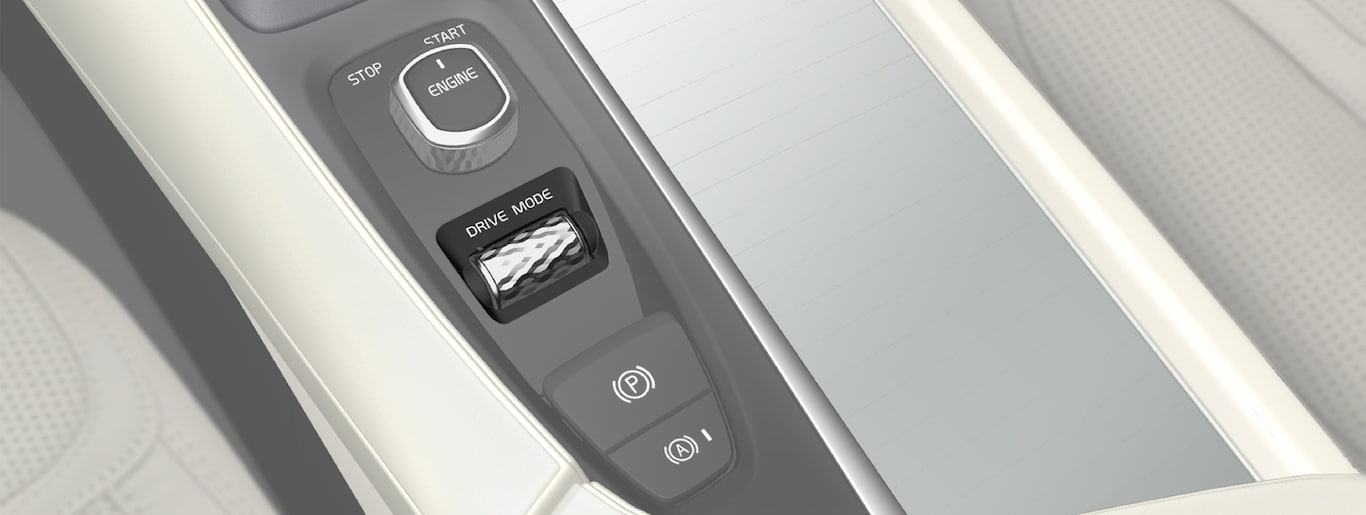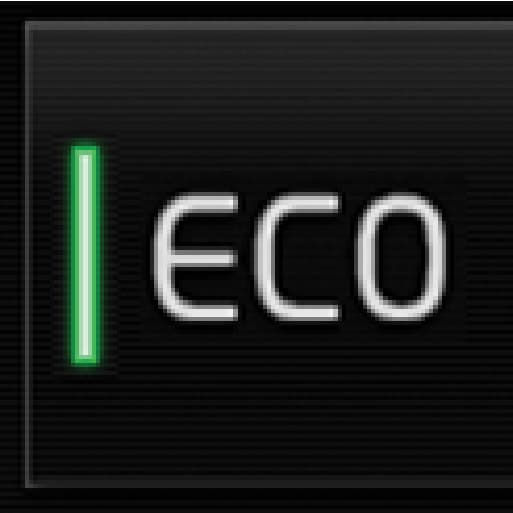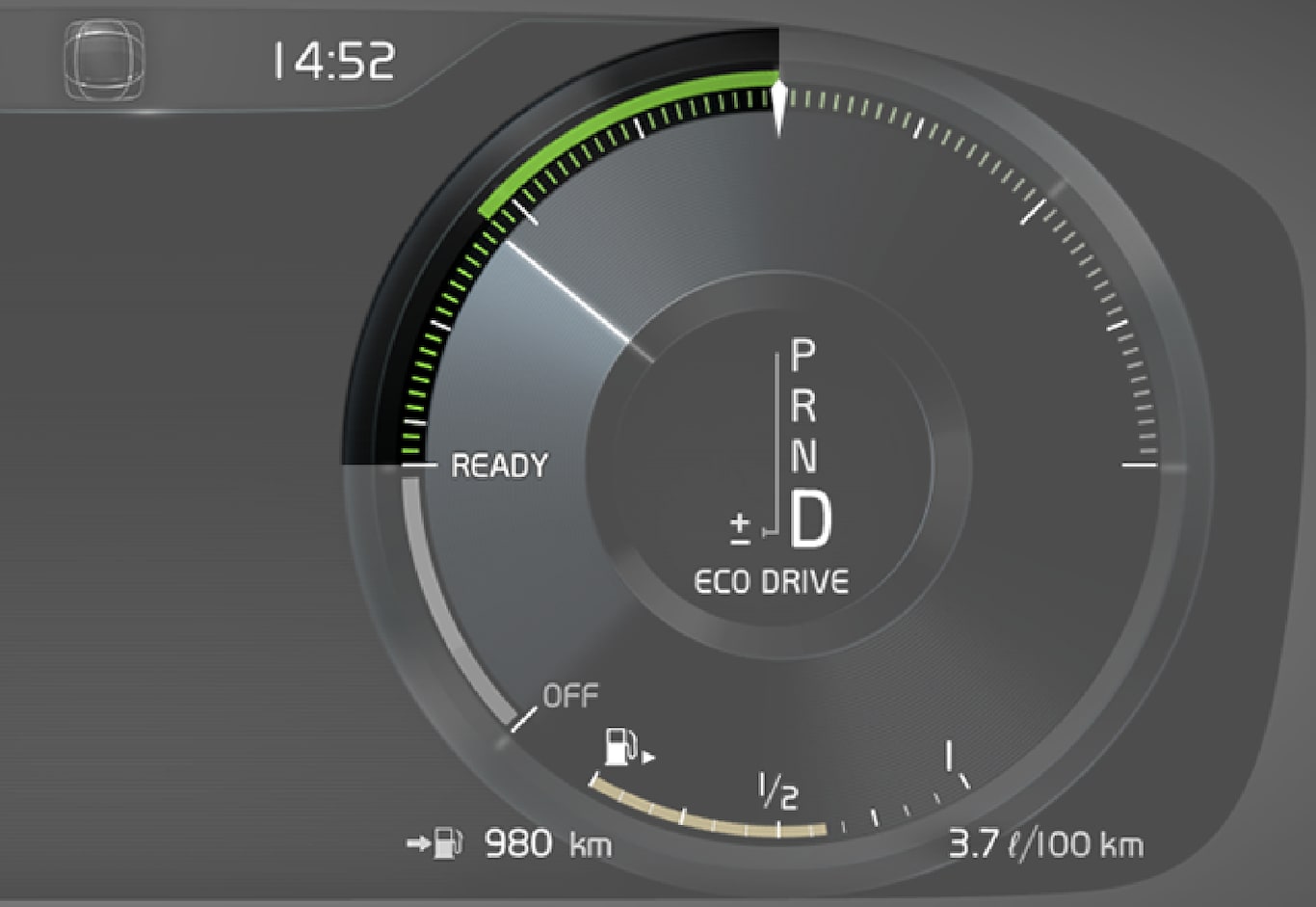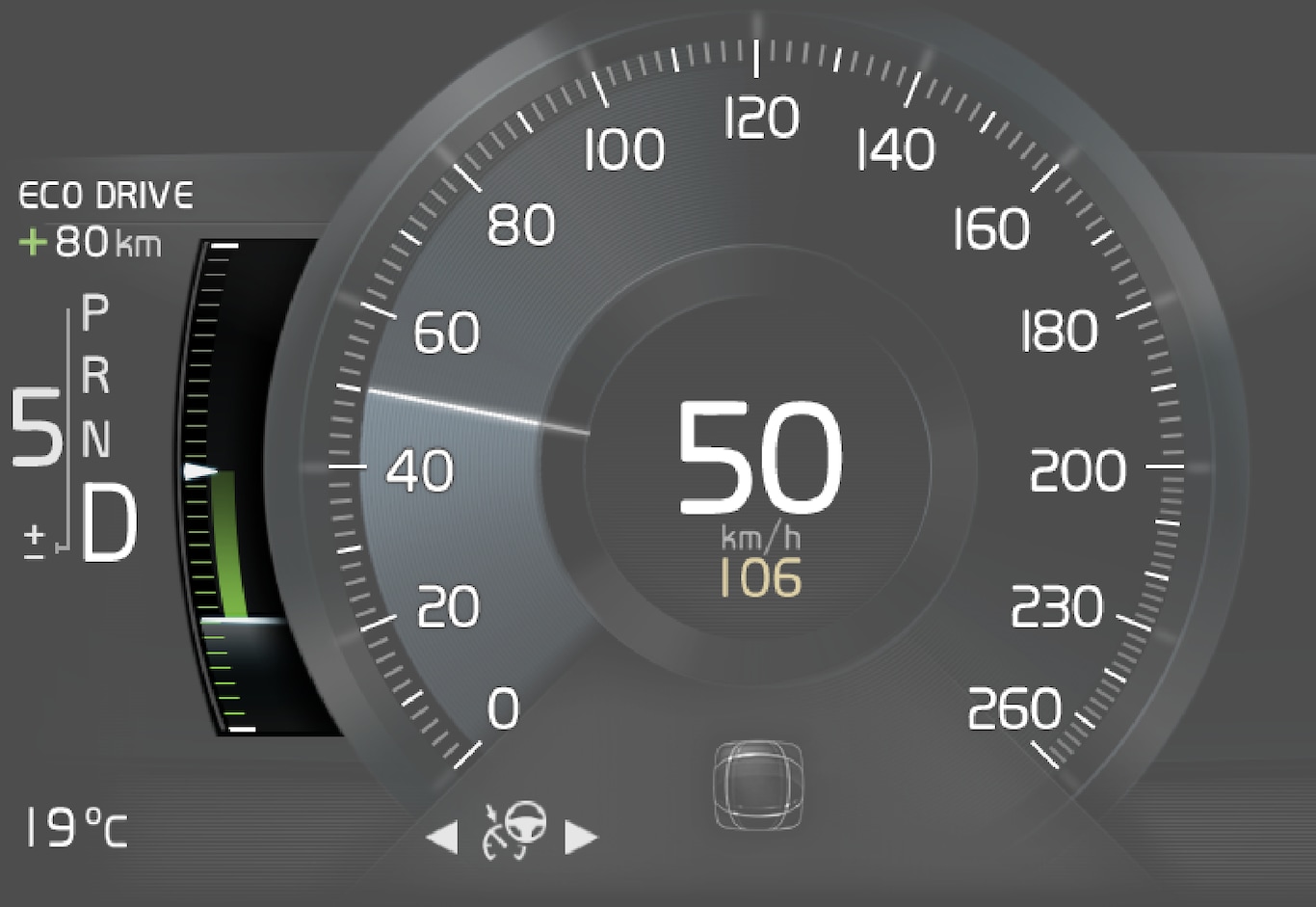Drive mode ECO
Use this drive mode to save fuel and the environment.
The following properties are adapted for Eco driving:
- Gearbox gearshift points.
- Engine management and response from the accelerator pedal.
- The Eco Coast freewheel function is activated and engine braking is deactivated when the accelerator pedal is released at speeds between 65 and 140 km/h (40 and 87 mph).
- Some of the climate control system's settings work at reduced power or are deactivated.
- The level control function* provides a low ground clearance in order to reduce wind resistance.
- The driver display shows information in an Eco gauge which facilitates environmentally-conscious and fuel-efficient driving.
Note
Selecting ECO mode
The Eco mode is deactivated when the engine is switched off, and it must therefore be activated after each time the engine is started. The driver display shows ECO when the function is activated.
With drive mode control*

In the centre display's function view

Cars without drive mode control have a function button for Driving mode ECO in the centre display's function view.
- Press the button in order to activate the function. An indicator in the button illuminates when the function is activated.
Freewheel function Eco Coast
The freewheel function Eco Coast means in practice that engine braking ceases, meaning in turn that the car's kinetic energy is used to freewheel for longer distances. When the driver releases the accelerator pedal the gearbox is automatically disengaged from the engine whose speed is reduced to idling speed with reduced consumption.
The function is best used where it is possible to freewheel a long way, e.g. roads with a slight downhill gradient or when there is a predictable speed reduction to freewheel into a zone with a lower speed limit.
Activating the freewheel function
The function is activated when the accelerator pedal is fully released, in combination with the following parameters:
- Driving mode ECO is activated.
- The gear selector is in D position.
- Speed within the range of approx. 65-140 km/h (40-87 mph).
- The road's downhill gradient is not steeper than approx. 6%.
The driver display shows COASTING when the freewheel function is being used.
Limitations
The freewheel function is not available if:
- Engine and/or gearbox are not at normal operating temperature.
- The cruise control is activated.
- The gear selector is moved from the D position and the manual position.
- The speed is outside the range of approx. 65-140 km/h (40-87 mph).
- The road's downhill gradient is steeper than approx. 6%.
- Manual gear changing is performed with the steering wheel paddles*.
Deactivating and switching off the freewheel function
In certain situations it may be desirable to deactivate or switch off the function in order to use engine braking. Examples of such situations may be on steep downhill gradients or before an imminent overtaking manoeuvre - in order to be able to do it in the safest way possible.
Deactivate the freewheel function as follows:
- Actuate the accelerator or brake pedal.
- Move the gear selector to manual position.
- Changing gear with steering wheel paddles*.
Switch off the freewheel function as follows:
- Change drive mode*, or switch off the Driving mode ECO in the function view.
Even without the freewheel function, it is possible to freewheel for short distances. This, in turn, reduces consumption. However, for the best fuel economy it is better to have the freewheel function activated and be able to freewheel for longer distances.
ECO gauge in the driver display
The Eco gauge indicates how fuel-efficient the driving is:
- With fuel-efficient driving, the gauge shows a low value with the pointer in the green zone.
- With non-fuel-efficient driving, e.g. during heavy braking or heavy acceleration, the gauge shows a high value.
The Eco gauge also has an indicator to show how a reference driver would drive the car under the same driving conditions. This is indicated with a "diamond" on the gauge.

